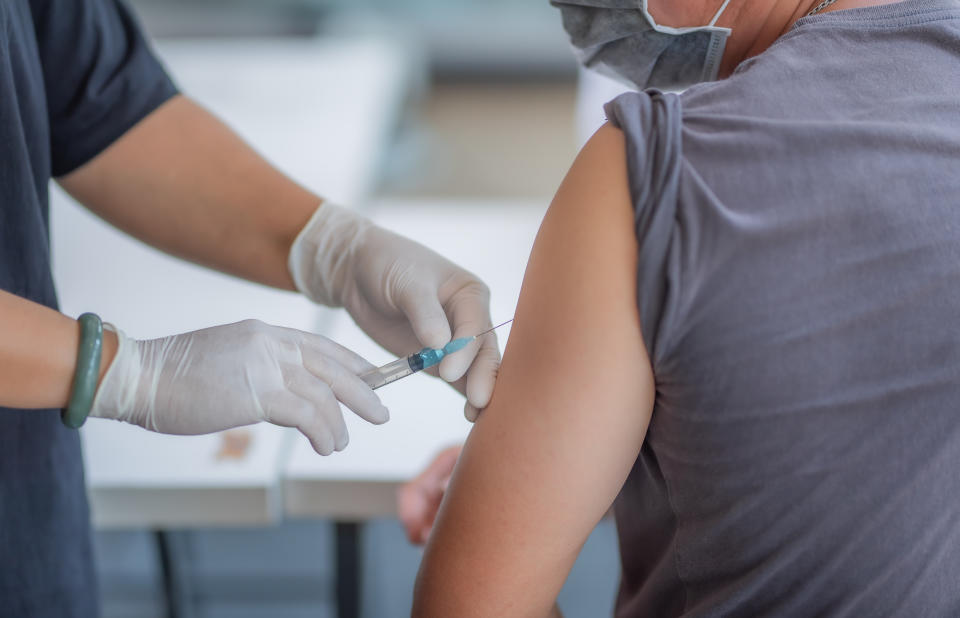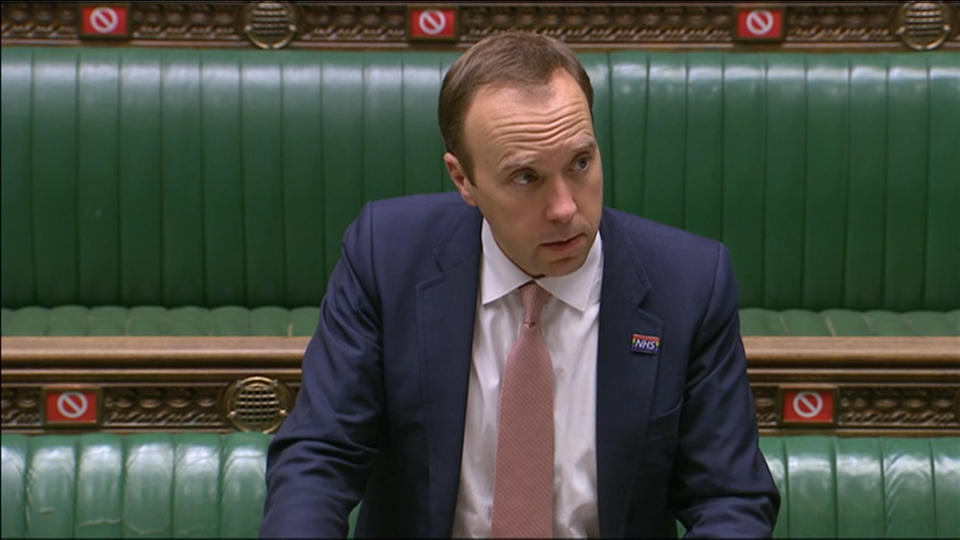‘1 million people every week’ will be given COVID-19 vaccine under NHS plans

Plans to vaccinate the UK against coronavirus could see up to a million people every week given the jab, reports suggest.
According to The Times, the Pfizer jab – which has been more than 90% effective in a trial of more than 43,000 people – could be given to all over-65s by Easter if it is approved.
Health secretary Matt Hancock said the UK’s medicines regulator could approve the Pfizer or Oxford jabs within days of a licence application being submitted, due to rolling analysis of the data.
Officials are hopeful the Oxford jab could widen out the vaccination programme throughout winter, The Times said.
The first stage of a so-called “three wave” strategy would also see all over-50s and the most vulnerable younger adults receive one of the jabs early in 2021.

Vaccine roll-out
Hancock told MPs in the Commons on Tuesday that the focus was on delivering the vaccines from Oxford and Pfizer if they pass safety tests and are approved by regulators, with a further vaccine possibly coming next summer.
Earlier, Hancock said the military and NHS staff are on standby to roll out a COVID-19 vaccine across the UK from the start of December and will work “seven days a week”, with GPs, new vaccination centres and pharmacists all playing a role.
Pop-up vaccination clinics are also expected to be used in some areas.
Watch: NHS ‘ready to inject hope into millions of arms’
Hancock said there were many hurdles to overcome before the “vast task” of vaccination could begin, including thorough examination of clinical trial data.
But he said the NHS was leading the work to get a vaccine to those most in need as soon as possible, including the elderly and health and care staff, though most other people will not get a jab until 2021.
Experts hope that the first phase of vaccination of priority groups could prevent the vast majority of deaths from COVID-19.
‘Enormous complexity’
Asked whether a vaccine could be available by Christmas, Hancock said that was “absolutely a possibility”, adding that vaccination clinics would be open on bank holidays and weekends.
He said that once a vaccine becomes available, it will be delivered through care homes, GPs and pharmacists, as well as “go-to” vaccination centres set up in venues such as sports halls.
Hancock said children would not need to have the vaccine and that it would be voluntary for adults, but acknowledged there was “enormous complexity” in administering the Pfizer vaccine, which needs to be kept in cold storage at a temperature of -70C.

The government has ordered 40 million doses of the Pfizer vaccine – enough for about a third of the UK population as each person would need two doses, 21 days apart.
Figures released on Tuesday showed that 532 more people had died within 28 days of testing positive for COVID-19, which is the highest figure reported in a single day since 12 May and brings the UK total to 49,770.
Watch: Can you catch the coronavirus twice?
Coronavirus: what happened today
Click here to sign up to the latest news and information with our daily Catch-up newsletter

 Yahoo Finance
Yahoo Finance 

